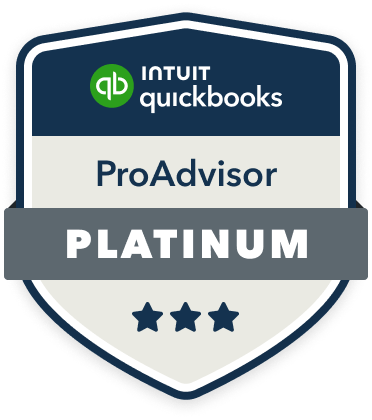5 Myths About Bookkeeping You Believe
Bookkeeping is the backbone of every successful business, yet it remains one of the most
misunderstood aspects of financial management. Whether you’re a startup founder, small business
owner, or seasoned entrepreneur, chances are you’ve encountered—or even believed—some
common misconceptions about bookkeeping that could be holding your business back.
Let’s debunk five prevalent myths and reveal the truth about this essential business function.
Myth 1: Bookkeeping Is Just Data Entry
Perhaps the most damaging misconception is that bookkeeping is nothing more than punching
numbers into a spreadsheet. This oversimplification does a disservice to the profession and to
business owners who underestimate its value.
In reality, bookkeeping encompasses a comprehensive range of financial management tasks.
Professional bookkeepers track expenses, manage invoices, reconcile accounts, and compile
detailed financial reports. They analyze spending patterns to identify inefficiencies, devise
strategies to optimize cash flow, and maintain communication with clients and vendors regarding
payments.
While data entry is certainly a component of the job, it’s merely the foundation. The real value lies in
the accuracy, organization, and strategic insights that transform raw numbers into actionable
business intelligence. A skilled bookkeeper doesn’t just record your financial history—they help you
understand it and use it to make better decisions.
Myth 2: Only Large Businesses Need Bookkeeping
Many small business owners and freelancers assume that bookkeeping is a luxury reserved for
corporations with complex finances. This couldn’t be further from the truth.
Accurate financial records are crucial for businesses of all sizes. Small businesses and freelancers
actually have more to lose from poor bookkeeping—they lack the financial cushion that larger
companies enjoy and can’t afford costly mistakes. Proper bookkeeping helps you maintain
organized records, track expenses accurately, and prepare for tax season without the last-minute
scramble.
The statistics are sobering: research indicates that 70% of small business owners don’t have a dedicated bookkeeper. Given how critical accurate bookkeeping is to business success, this gap
represents a significant vulnerability for countless small enterprises. Whether you’re running a solo
operation or managing a growing team, professional bookkeeping provides the financial clarity you
need to thrive.
Myth 3: Software Can Replace Professional Bookkeepers
The rise of accounting software like QuickBooks and Xero has led many to believe that technology
has made human bookkeepers obsolete. While these tools are powerful, they’re far from being a
complete solution.
Accounting software excels at streamlining repetitive tasks—invoicing, generating reports, and
organizing data. However, these tools are only as effective as the person using them. They cannot
provide the judgment, experience, and strategic insight that a professional bookkeeper brings to the
table.
A skilled bookkeeper ensures that data is entered accurately, interprets numbers to identify
inconsistencies or potential risks, and offers personalized advice aligned with your business goals.
They can recommend the best systems for your specific needs, customize software workflows to
maximize efficiency, and catch errors that automated systems might miss. Technology is a tool that
enhances a bookkeeper’s capabilities—it doesn’t replace them.
Myth 4: DIY Bookkeeping Saves Money
When budgets are tight, handling bookkeeping yourself might seem like a smart way to cut costs.
Unfortunately, this decision often proves to be a false economy.
Small business owners who attempt DIY bookkeeping frequently miss valuable tax deductions,
make compliance mistakes, and overlook important financial transactions. These errors can result in penalties, missed opportunities, and financial setbacks that far exceed the cost of professional
services.
Beyond the risk of costly mistakes, consider the opportunity cost of your time. Hours spent
wrestling with bookkeeping tasks are hours not spent on sales, marketing, product development, or
strategic planning—activities that actually grow your business. Professional bookkeeping isn’t an
expense; it’s an investment that protects your financial health and frees you to focus on what you
do best.
Myth 5: Bookkeeping Is Only Needed at Tax Time
Some entrepreneurs believe they can manage their own finances throughout the year and bring in a
bookkeeper only when tax season approaches. This approach is like trying to fix a leaking roof
during a hurricane—you’re addressing the problem far too late.
Financial mistakes compound over time. An expense entered incorrectly in January can create
cascading errors that take months to untangle. Missing transactions, misclassified expenses, and
unreconciled accounts don’t improve with age—they become harder to correct and more costly to
fix.
Year-round bookkeeping provides continuous financial visibility, enabling you to make informed
decisions in real time. It ensures you’re always prepared for tax obligations, helps you identify
problems before they escalate, and gives you an accurate picture of your business’s financial health
at any moment. Waiting until tax time isn’t just inefficient—it’s risky.
The Bottom Line
These five myths represent just a fraction of the misconceptions surrounding bookkeeping, but
they’re among the most damaging. By understanding the true nature and value of professional
bookkeeping, you position your business for greater financial stability, compliance, and growth.
Whether you’re just starting out or running an established operation, accurate bookkeeping isn’t
optional—it’s essential. Don’t let outdated myths prevent you from giving your business the financial
foundation it deserves.




